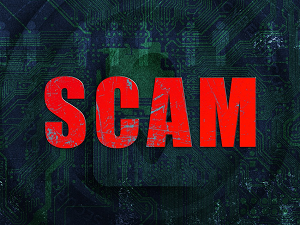
Welcome to the world of event scams, where we uncover the various tactics cyber criminals employ to deceive and exploit eager event-goers. From deceptive streaming services promising free access to major sports events, to ticket scams on social media, and phishing emails mimicking legitimate ticketing services, the landscape of event-related fraud is vast and evolving. Let's dive into each of these schemes, offering insights on how to protect yourself and ensure your event experiences remain safe and enjoyable.
Streaming Platform Scams
Streaming platform scams are on the rise, especially around popular sporting events like the Olympics or major league matches. Cybercriminals lure unsuspecting users with promises of free streaming services. These scams often appear as ads or comments on social media, phishing emails, or fake websites mimicking legitimate streaming platforms. To protect yourself:
- Think Twice Before Clicking: Avoid clicking on ads or links that offer free streaming of high-demand events.
- Stick to Official Sources: Visit the official event website or verified social media pages for legitimate streaming options.
- Beware of Personal Info Requests: Legitimate streaming services rarely ask for unnecessary personal or financial information, especially if they claim to be free.
Ticket Scams on Social Media
Ticket scams are another common trap, particularly on social media. Imagine spotting a tempting post offering last-minute tickets to a sold-out concert at an unbelievable price. You proceed, enter your payment details, and purchase the tickets, only to find they never arrive, and the seller’s social media account mysteriously disappears. To avoid falling victim:
- Buy from Official or Reputable Resale Platforms: Always purchase event tickets from official sources or well-known resale platforms.
- Verify Seller Credibility: Be cautious of unfamiliar accounts selling tickets at too-good-to-be-true prices.
Event-Related Phishing Emails
Phishing emails disguised as event notifications are also prevalent. These emails mimic well-known ticketing services or claim to offer exclusive access to real or fictitious events. To protect yourself:
- Verify Sender Details: Check the sender’s email address for legitimacy.
- Hover Before You Click: Before clicking any links, hover over them to verify their true destination.
- Go Directly to the Source: Instead of clicking links in emails, navigate directly to the company’s official website.
In the realm of event scams, knowledge is your best defense. Stay informed, remain vigilant, and trust only verified sources to ensure you enjoy your events without the risk of being scammed. Stay safe out there!
If you do not currently have an IT provider or would like a second opinion on your network security, please don’t hesitate to reach out to our team. We are here to serve you in the Niagara Region and Simcoe County, 24/7/365.
Niagara: 905-228-4809
Barrie: 705-885-0993
Email: help@b4networks.ca



